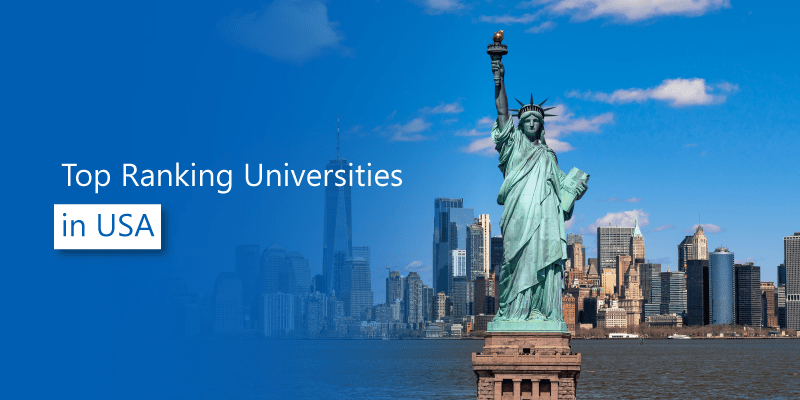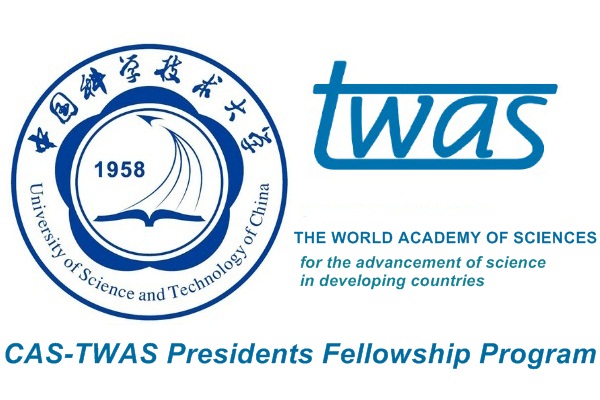Top 10 Universities in the USA
Top universities in the USA that play a crucial role in shaping not only the academic landscape but also the broader societal and economic landscape in several ways:
Excellence in Education: These universities are renowned for their rigorous academic programs, distinguished faculty, and cutting-edge research. They attract some of the brightest minds from around the world, providing students with unparalleled opportunities for intellectual growth and development.
Research and Innovation: Top universities are hubs of innovation and research, driving advancements in various fields such as science, technology, medicine, engineering, and the humanities. Their groundbreaking research contributes to scientific discoveries, technological innovations, and societal advancements, ultimately shaping the future of our world.
Global Reputation and Influence: The reputation of top universities extends far beyond national borders, with many being recognized as global leaders in education and research. Their influence extends to international collaborations, partnerships, and exchanges, fostering cross-cultural understanding and collaboration on a global scale.
Economic Impact: Top universities serve as engines of economic growth and innovation, attracting talent, investment, and industry partnerships. They contribute to the development of local economies by generating jobs, fostering entrepreneurship, and driving innovation clusters in surrounding areas.
Talent Pipeline: These universities produce graduates who are highly sought after by employers worldwide. Their alumni go on to become leaders in various fields, driving innovation, entrepreneurship, and social change. The talent pipeline created by top universities fuels the workforce with skilled professionals who contribute to economic growth and societal development.
Cultural and Intellectual Hub: Top universities are vibrant intellectual and cultural hubs, fostering a diverse and inclusive community of scholars, students, and thinkers. They serve as centers for critical thinking, creativity, and dialogue, fostering an environment where ideas are exchanged, challenged, and refined.
Social Mobility and Equity: While access to top universities can be competitive, many of these institutions are committed to promoting diversity, equity, and inclusion. They provide financial aid, scholarships, and support programs to ensure that talented students from diverse backgrounds have access to quality education and opportunities for social mobility.
Policy and Public Discourse: Top universities often play a significant role in shaping public policy and discourse. Their faculty members are experts in their respective fields, contributing to debates on pressing social, political, and economic issues and informing policy decisions at local, national, and international levels.
Why these Universities are leader in USA
Here’s a list of some of the top universities in the USA along with their websites:
Massachusetts Institute of Technology (MIT) – mit.edu
MIT is a world-renowned institution known for its cutting-edge research and innovation across various fields, including science, engineering, technology, and mathematics. Situated in Cambridge, Massachusetts, MIT boasts a diverse and dynamic community of students, faculty, and researchers who collaborate to tackle some of the most pressing challenges facing society today. With a strong emphasis on hands-on learning and interdisciplinary collaboration, MIT offers a range of undergraduate and graduate programs designed to cultivate creative problem-solving skills and prepare students to make meaningful contributions to the world.
Stanford University – stanford.edu
Located in the heart of Silicon Valley, Stanford University is synonymous with innovation and entrepreneurship. Home to a vibrant community of scholars, Stanford fosters a culture of interdisciplinary collaboration and intellectual curiosity, attracting students and faculty from around the globe. With world-class programs in engineering, business, humanities, and the sciences, Stanford offers a transformative educational experience that empowers students to become leaders and innovators in their respective fields.
Harvard University – harvard.edu
As one of the oldest and most prestigious universities in the world, Harvard University has a rich history of academic excellence and intellectual inquiry. Situated in Cambridge, Massachusetts, Harvard is renowned for its rigorous curriculum, distinguished faculty, and unparalleled resources. From the arts and humanities to the sciences and social sciences, Harvard offers a diverse array of programs that challenge students to think critically, explore new ideas, and pursue their passions.
California Institute of Technology (Caltech) – caltech.edu
Nestled in Pasadena, California, Caltech is a small but mighty institution known for its groundbreaking research and academic rigor. With a focus on science and engineering, Caltech attracts some of the brightest minds in the world, who come together to push the boundaries of knowledge and innovation. From exploring the mysteries of the universe to developing new technologies that improve lives, Caltech is at the forefront of scientific discovery and technological advancement.
University of Chicago – uchicago.edu
Located in the vibrant city of Chicago, the University of Chicago is renowned for its rigorous academic programs and intellectual rigor. With a strong emphasis on interdisciplinary scholarship and critical thinking, University of Chicago fosters a culture of inquiry and debate that challenges students to question assumptions, explore new ideas, and engage with complex issues. From the arts and humanities to the social sciences and physical sciences, University of Chicago offers a diverse array of programs that empower students to become thoughtful leaders and engaged citizens.
Princeton University – princeton.edu
Situated in Princeton, New Jersey, Princeton University is known for its picturesque campus, distinguished faculty, and world-class academic programs. With a commitment to undergraduate education, Princeton offers a highly personalized learning experience that encourages students to explore their passions, pursue independent research, and contribute to the advancement of knowledge. From the humanities and social sciences to engineering and the natural sciences, Princeton offers a wide range of programs that prepare students for success in a rapidly changing world.
Columbia University – columbia.edu
Located in the heart of New York City, Columbia University is an Ivy League institution known for its academic excellence, diverse community, and global perspective. With a commitment to interdisciplinary scholarship and civic engagement, Columbia offers a range of programs that empower students to address complex challenges facing society today. From the arts and humanities to the social sciences and engineering, Columbia provides students with the knowledge, skills, and opportunities they need to make a positive impact in the world.
Yale University – yale.edu
Situated in New Haven, Connecticut, Yale University is one of the oldest and most prestigious universities in the United States. With a rich history of academic excellence and intellectual inquiry, Yale offers a transformative educational experience that challenges students to think critically, communicate effectively, and engage with diverse perspectives. From the humanities and social sciences to the natural sciences and engineering, Yale offers a wide range of programs that empower students to pursue their passions and make a difference in the world.
University of Pennsylvania – upenn.edu
Located in Philadelphia, Pennsylvania, the University of Pennsylvania is an Ivy League institution known for its rigorous academic programs and vibrant campus community. With a commitment to interdisciplinary scholarship and real-world impact, Penn offers a range of programs that empower students to address pressing challenges facing society today. From business and law to medicine and engineering, Penn provides students with the knowledge, skills, and opportunities they need to succeed in their chosen fields.
Johns Hopkins University – jhu.edu
Situated in Baltimore, Maryland, Johns Hopkins University is renowned for its leadership in research, innovation, and education. With a focus on advancing knowledge and improving lives, Johns Hopkins offers a range of programs that empower students to make a positive impact in their communities and beyond. From medicine and public health to engineering and the arts, Johns Hopkins provides students with the tools they need to tackle some of the most pressing challenges facing society today.
General admission criteria
While admission criteria can vary significantly between universities and programs, there are some common factors that many top universities in the USA consider when evaluating applicants:
Academic Performance: Most universities consider applicants’ academic records, including their high school GPA, class rank, and rigor of coursework. Strong performance in challenging courses, particularly in relevant subjects, is often a key indicator of academic preparedness.
Standardized Test Scores: Many universities require applicants to submit scores from standardized tests such as the SAT or ACT. These scores provide a standardized measure of academic aptitude and are used by admissions committees to assess applicants’ readiness for college-level work.
Letters of Recommendation: Letters of recommendation from teachers, counselors, or other individuals who can speak to applicants’ academic abilities, character, and potential are often required as part of the application process. Strong letters of recommendation can provide valuable insights into applicants’ qualifications and personal qualities.
Extracurricular Activities: Universities often look for applicants who have demonstrated involvement and leadership in extracurricular activities such as sports, clubs, community service, and part-time work. Participation in extracurricular can demonstrate applicants’ interests, passions, and ability to balance multiple responsibilities.
Personal Statement or Essay: Many universities require applicants to submit a personal statement or essay as part of their application. This essay provides applicants with an opportunity to showcase their writing skills, express their personal values and aspirations, and provide additional context to their academic and extracurricular achievements.
Interviews: Some universities may conduct interviews as part of the admissions process to assess applicants’ communication skills, interpersonal qualities, and fit with the university’s culture and community. Interviews may be conducted in person, over the phone, or via video conferencing.
Demonstrated Interest: Some universities track applicants’ demonstrated interest in their institution, such as campus visits, attending information sessions, or contacting admissions officers. Demonstrating genuine interest in the university can positively impact an applicant’s chances of admission.
Special Talents or Achievements: Universities may also consider special talents or achievements demonstrated by applicants, such as artistic abilities, athletic accomplishments, research projects, or entrepreneurial ventures. These talents and achievements can set applicants apart and enhance their overall profile.
It’s important to note that admission criteria can vary widely between universities and programs, and some institutions may consider additional factors beyond those listed above. Additionally, universities often use a holistic review process, considering multiple factors in combination to evaluate applicants’ qualifications and potential for success.


